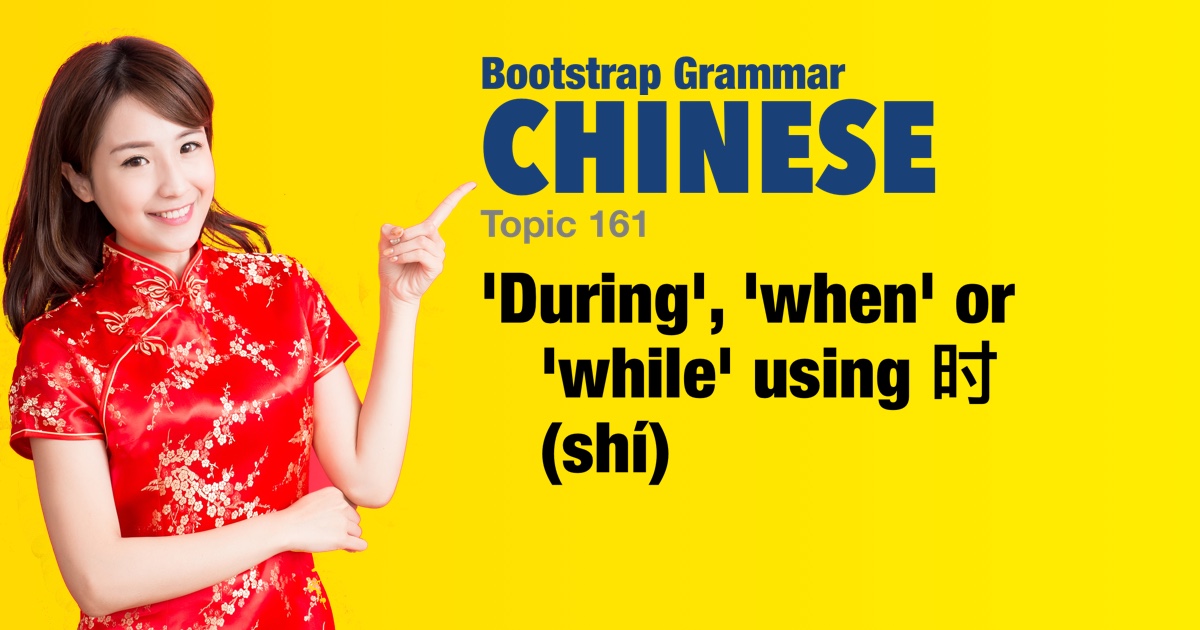Chinese grammar - 'During', 'when' or 'while' using 时 (shí) |
|||
|
|||
The Chinese word 时 (shí) is used in phrases to indicate specific times or moments when an action occurs. It functions similarly to the English word 'when', 'during' or 'at the time of'. • When it is attached to a verb, it means 'while' the verb is happening. • When it is attached to a noun, it means 'during' or 'at the time' that noun occurs. |
| Examples: | |
|
吃饭时不要说话。
chīfàn shí búyào shuōhuà. Don’t talk while eating. |
|
|
上课时请保持安静。
shàngkè shí qǐng bǎochí ānjìng. Please keep quiet during class.
|
|
|
假期时我们去了海边。
jiàqī shí wǒmen qù le hǎibiān. We went to the beach during the holiday. |
|
|
旅行时我们拍了很多照片。
lǚxíng shí wǒmen pāi le hěnduō zhàopiàn. We took many photos while traveling. |
|
|
开会时不要使用手机。
kāihuì shí búyào shǐyòng shǒujī. Do not use your phone during the meeting.
|
|
|
下雨时请带伞。
xiàyǔ shí qǐng dài sǎn. Please bring an umbrella when it rains. |
|
|
生病时要多喝水。
shēngbìng shí yào duō hē shuǐ. Drink more water when you are sick. |
|
|
晚饭时我们聊了很多。
wǎnfàn shí wǒmen liáo le hěnduō. We talked a lot during dinner. |
|
|
读书时我喜欢听音乐。
dúshū shí wǒ xǐhuān tīng yīnyuè. I like to listen to music while reading. |
|
|
看电影时请关闭手机。
kàn diànyǐng shí qǐng guānbì shǒujī. Please turn off your phone while watching the movie.
|
|
|
早上时空气很清新。
zǎoshang shí kōngqì hěn qīngxīn. The air is fresh during/in the morning.
|
|
|
晚上时我喜欢散步。
wǎnshang shí wǒ xǐhuān sànbù. I like to take walks in the evening. |
|
|
上班时他总是很忙。
shàngbān shí tā zǒngshì hěn máng. He is always busy during work hours. |
|
|
运动时要注意安全。
yùndòng shí yào zhùyì ānquán. Pay attention to safety while exercising. |
|
|
周末时我通常休息。
zhōumò shí wǒ tōngcháng xiūxi. I usually rest during the weekends. |
|
 |
|



